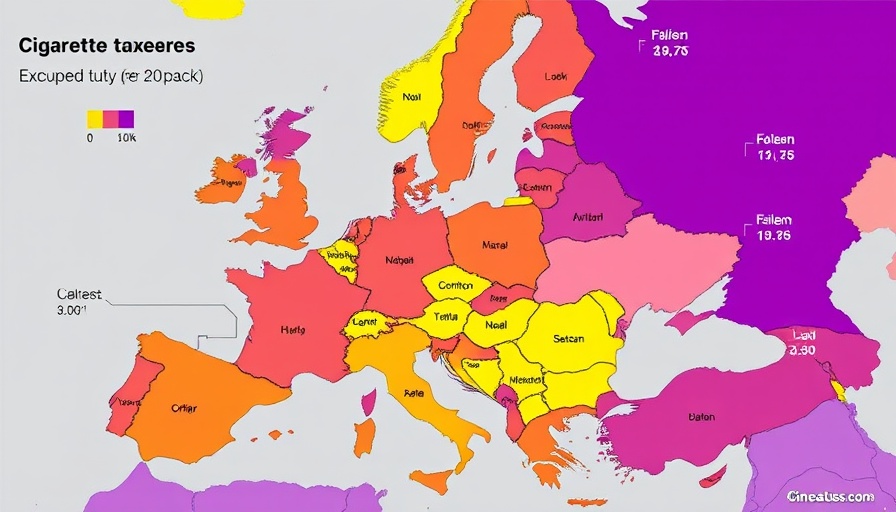
The Future of EU Taxation: A Confusing Landscape
In a rapidly evolving global economy, the tax landscape within the European Union (EU) is undergoing considerable scrutiny. During a recent interview, Dr. Irma Mosquera Valderrama, a prominent expert in tax governance, addressed the ongoing confusion surrounding the EU tax mix. Her insights shed light on the challenges facing small and medium-sized enterprises (SMEs) and highlight the urgent need for clear and coherent fiscal strategies.
Understanding EU Tax Mix – Where Do We Stand?
Historically, the EU has grappled with the complexities of taxation, particularly as nations adapt to economic shifts following the 2008 financial crisis. Dr. Mosquera notes a clear shift from efforts to promote business taxation solutions towards compliance with international standards. This transition includes a focus on Base Erosion and Profit Shifting (BEPS), digital business taxation, and wealth taxation, which has left many stakeholders, including CPAs and SMEs, uncertain about what to expect.
The Clash of Policies and Their Impact on Businesses
In her analysis, Dr. Mosquera articulates that despite numerous initiatives aimed at fair taxation and transparency, the absence of a unifying vision hampers progress. The introduction of various directives, such as BEPS Project initiatives and the Anti-Tax Avoidance Directive, offers frameworks for compliance but may disproportionately burden businesses, especially smaller ones that often lack resources to navigate complex tax requirements.
Calls for Clarity: The Need for a Unified Tax Strategy
With emerging directives and proposed reforms such as the UNSHELL Directive—which stalled due to overlaps with current frameworks—there is an urgent need for the EU to provide clarity. Dr. Mosquera emphasizes that without a clear direction in tax policy, trust and legitimacy among EU citizens and commerce will deteriorate. CPAs must be prepared to adapt their strategies to emerging trends, advocating for policy changes that simplify taxation while supporting the competitiveness of SMEs.
Future Predictions: Trends to Watch in EU Taxation
Looking ahead, Dr. Mosquera suggests that as the EU engages in discussions about taxation, emphasis must be placed on creating systems that facilitate equitable taxation across borders. This includes examining the disparities in tax burdens on SMEs compared to multinational corporations. The introduction of robust wealth taxation could alter financial landscapes, prompting businesses to reassess their tax strategies and financial planning.
Taking Action: Strategic Steps for CPAs and SMEs
The conclusion drawn from this interview is that CPAs and small businesses must adopt proactive measures to navigate the shifting taxation environment in the EU. Understanding the implications of new directives and actively engaging in discussions regarding tax reforms is crucial. Moreover, robust financial planning and consultation with tax professionals will pave the way for sustainable growth in an unpredictable policy landscape.
As we digest the complexities presented by authorities like Dr. Irma Mosquera Valderrama, it’s clear the call for transparent and fair taxation isn't merely a bureaucratic issue—it's a foundational component of economic trust and business sustainability in Europe.
Stay updated on the evolving landscape of EU taxation and equip yourself with the insights needed to thrive. The changes on the horizon present both risks and opportunities. Don't navigate them alone.
 Add Row
Add Row  Add
Add 




Write A Comment